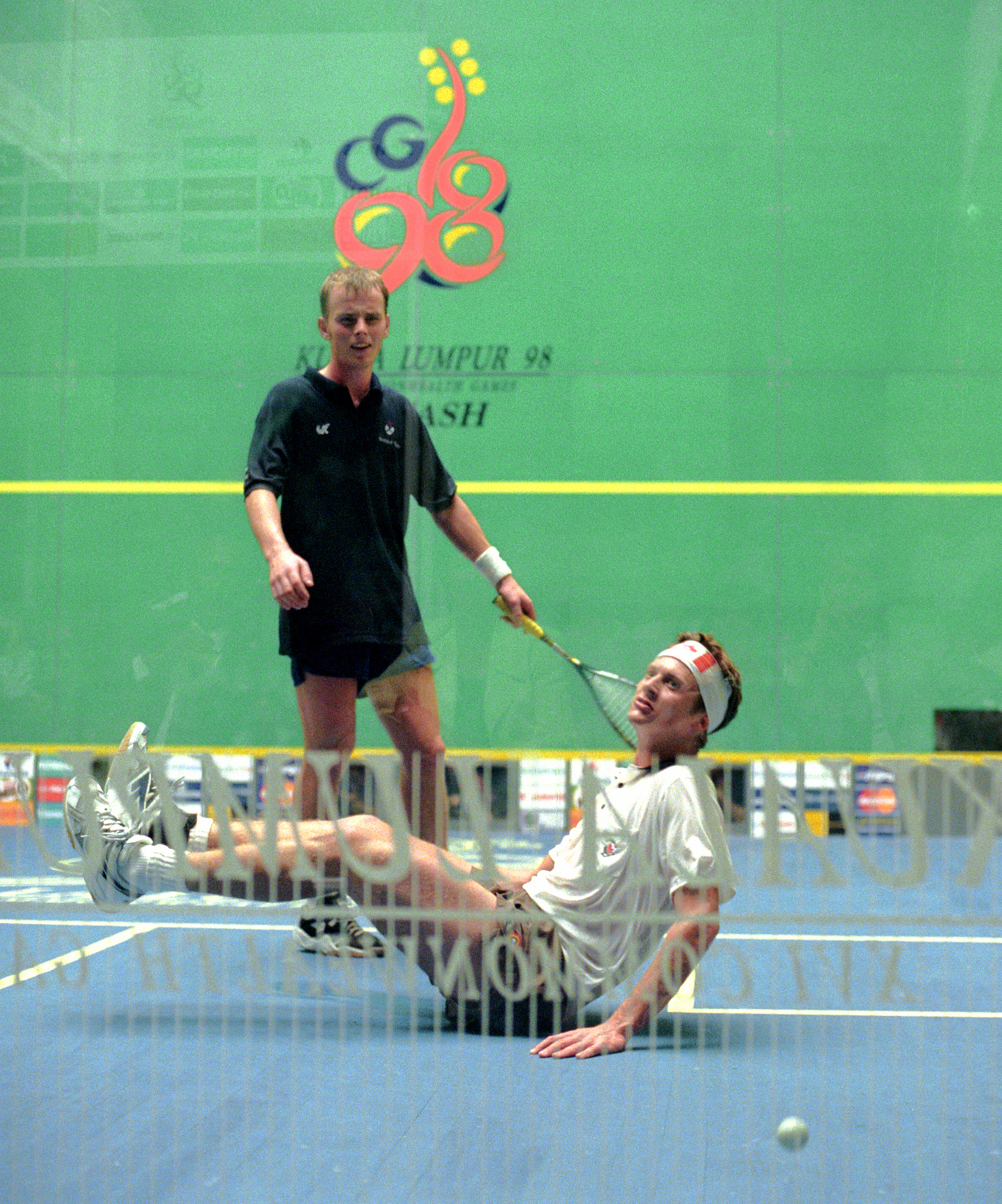
By Peter Nicol
Whatever the reason for a loss, I always hear, “I lost my focus,” “the referee was to blame,” or some such lament. So, how do you remain focused while your heart rate peaks, the referee gives bad decisions or your opponent is outplaying you at that moment? Not easy, but that is one reason we all love squash.
The game challenges us to the full. Playing against an almost equal opponent who undoubtedly has different strengths and weaknesses means it is the player with the stronger mental game who will prevail. I loved this aspect of the game, and won a high percentage of those battles, though I had some tough cases of mental fragility and times when I was beaten before even stepping on court.
I tried to keep everything simple—no surprises for anyone that has followed my advice on SquashSkills over the past three years. The reason to keep my thought process simple during difficult situations was the sheer fact that too much cognitive thought is almost impossible with a heart rate of 185 beats per minute alongside an ongoing mental battle. One thought, one nugget of information that pertains to the previous point, can make a difference to the future of the match and is all that is needed or can be expected. By simplifying your thoughts down to a single goal, you also deny several other issues that are undoubtedly going around your head, and potentially more obstacles to achieving your ultimate aim—to win the match.
Some simple thoughts and replies from my personal train of thought:
I’m too tired to continue—Can you return serve and move to the T? If yes, then disregard and move on.
The referee made a bad call—Yes they did, what can you do about it? Nothing, disregard and move on.
My opponent is too good—Are they really? Have you tested them fully? Unlikely, so try different tactics: play the game slower, straighter, deeper, shorter, higher, more angles, etc.
I’m playing really badly—The next point is the beginning of a whole new chapter, what went before does not matter or count.
This is simplistic, which works for me when I devote myself to believing and applying the answer. Try to boil down situations that seem complicated and unfathomable into straightforward questions and answers. I’m sure you will find some really positive solutions that maybe were not apparent before.
Good luck!





